September Photographer of the Month: Kerry Dexter
Our September Photographer of the Month is Kerry Dexter. I've known her for a long time through Gather.com, as one of the Music Correspondents. She brings a wealth of information and lore about global musicians there, but she's also a fantastic photographer in her own right. I was lucky enough to sit down and chat with Kerry about photography, and music, and the challenges of photographing musicians. Here's what she had to say...
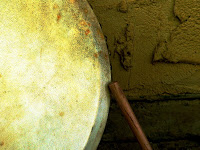
Bodhran
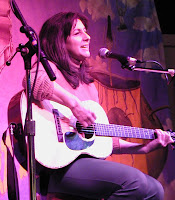
Tish Hinojosa
WE: How did you get interested in photography?
KD: I think I’ve always been interested in how to think about things visually. I remember having a box camera as a kid, and also drawing and making collages. My step father was a photographer, and one of the main things I remember about him is how much joy he had in taking family pictures.
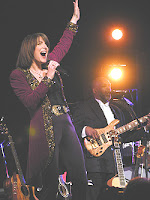
Kathy Mattea
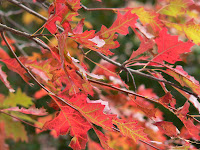
Fall leaves
Glasgow Spires
WE: How long have you been a photographer?
KD: Always, I guess, though at times it’s taken a sidetrack to other things. At college I had a double major in history and in the visual arts, both of which have been helpul in what I’ve done since. I’ve never taken a photo class, though.
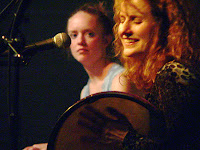
Hanneke Cassel & Cathie Ryan
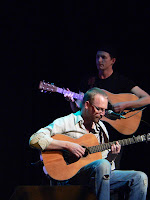
Boo Hewerdine & John Doyle
WE: What is your favorite place to photograph? Or subject?
KD: place: Ireland, Scotland, and the American South. subject: landscapes in those places, and good musicians anywhere. it was once pointed out to me that whatever I’m shooting, I’m always taking portraits, which I think is a fair comment.
Harbor Eve
Texas Capital Dome
WE: How difficult is it to take film on travels? Or does one really need to be all digital?
KD: I travel with digital these days, and it is easier -- although that said I’ve had cameras damaged by people stuffing gear on top of my bags, or stepping on them. If you do travel with film, I’d recommend asking for hand inspection, though not every place will do this. And if you travel with telephoto lenses expect to have your bags searched.
Liz Carroll and John Doyle
Cathie Ryan
WE: Are there rules in other countries people need to be aware of about who or what you can or cannot shoot?
KD: Yes, and it varies by country, and by situation. For example, though things are calmer in Northern Ireland now than they used to be, I photographed murals in West Belfast but did not take shots of police barracks or police themselves. Didn’t feel safe or appropriate at the time, and also I stopped shooting there at all when a group of teenagers started watching me too closely.
In general, though, it’s a matter of respect. I see far too many people with cameras acting as though people are objects or props, and that’s no way to treat anyone, or to know the world. The same is true, by the way, about photographing musicians. Respect for their creativity and their connection with their audience is necessary.
Hanneke Cassel
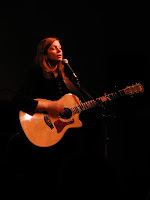
Carrie Newcomer
WE: Many of your subjects are musicians. Are there tips you'd like to share
about photographing moving subjects like that?
KD: Patience, timing, and respect, are what I’d suggest when it comes to shooting musicians, and those ideas work for other moving subjects too I think. Try to anticipate where the subject is going, and focus a bit ahead of them to get your shot. If you’re shooting a sporting event, look at a lot of possibilities -- the dramatic detail, the center of the action, the wide shot, the shot of the player watching from the bench -- all of those can be good shots. Sometimes an out of focus shot may unexpectedly turn out to be one that really suggests the atmosphere and the emotion of the moment, too, so stay open to that possibility.
Cathie Ryan
Angus Finnan & Karen Mal
WE: Why have you chosen to focus on photographing musicians?
KD: Music is such a connector, and there’s always more to learn. both of those are part of why I choose to photograph musicians. I think a lot visually, and I think a lot about music, so I am able to share ideas about music through the visual side of things that relate to, but are not the same as, what I do when I write about music. also many of my friends are musicians -- that adds to the fun. short answer, it’s another way to serve the music.
Kris Drever
Sarah-Jane Summers
WE: Any tips you want to share?
KD: Shoot what you love. I’m an intuitive photographer, rather than a technical one, though the technical approach works well for other people. I’m reminded of a comment by the early twentieth century painter Robert Henri who said you should be able to paint with the model behind you -- I sort of feel that way about the technical side of things.
Photographing music is part of the way I think about music itself, what it means and how it connects us. There’s more about what I think about photographing music here.
John Doyle
WE: Is there anything else you'd like to share with us?
KD: A songwriter friend of mine says that when she’s singing, she looks at it as a three way conversation: herself, the audience, and if things are really going right, something bigger, a real contact or connection or insight that goes beyond the moment. That’s what I’m looking for in my work as well.
Mairead ni Mhaonaigh
Pumpkins
WE: Thanks so much, Kerry. When I look at your magnificent photographs, I just feel like I am there, in the music, listening with my heart and eyes.
To see more of Kerry's work, please see her on the following sites:
All photos courtesy and copyright of Kerry Dexter.
-

- Log in to post comments




















